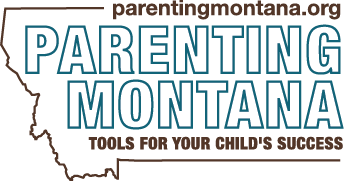Listen to an audio file of this tool.
You might be seeking this tool because
- your one-year-old just keeps crying,
- you are struggling with their sleep routine,
- important people in your life have different ideas about parenting,
- you feel overwhelmed with the new roles and responsibilities of parenting;
- you are feeling frustrated or angry at times, or
- you are starting to think about your guidance and discipline for skill building approach for the future.
Guidance and discipline for skill building is not appropriate for 1-year-olds. They cannot understand cause and effect. Any form of punishment will damage their relationship with you. If they engage in behavior that is potentially unsafe, damaging, or harmful to you or someone else, your goal is to redirect their attention to something else.
Your primary focus is to grow a secure and loving relationship with your child and encourage this with other caring adults as well. The focus should be on growing safe, stable, nurturing relationships. These relationships are the foundation of your child’s healthy development.
One-year-olds undergo rapid development in their second year of life. They are constantly learning just like new parents are. As a parent or someone in a parenting role, you play an essential role in your child’s healthy development. You guide the development of their social and emotional skills that they will use for the rest of their life. These skills are established through their interactions with you.
One-year-olds are constantly learning about the world around them and how to interact with others. Even the very basics like how to eat, how to sleep, and how other people react to them are all brand new. So when a one-year-old plays with something as if it is a toy, they are engaging in important learning by observing and exploring their world. They are not acting inappropriately or “acting up”; they are exploring and learning.
To support their healthy development, you want to keep them safe and encourage this exploring and learning. For example, when a one-year-old picks up your cell phone or turns over a cup, you can redirect their attention to something else like their toy.
There will be lots of redirecting and encouraging. At times, this will be challenging and tiring for you. But remember, not only are they exploring objects, they are also learning about how you react. Your reactions will form the basis of your relationship. A healthy relationship comes from repeated caring and loving interactions with you.
These interactions will impact their ability to listen, to communicate effectively, to learn about and manage their feelings, and to trust in you as a caregiver. These interactions form the basis of your parenting relationship and intentional communication — two critical components for their healthy development.
Expect your one-year-old to cry to communicate. Even when you have fed them, changed their diaper, ensured rest, and offered activity, one-year-olds may cry. Remember, children don’t cry to upset you, nor are you failing as a parent when your child cries. Crying is their primary form of communicating with you to get their needs met. Being responsive to their cries does not spoil your child. Being responsive develops a healthy relationship and helps them feel a greater sense of safety and trust, advances their self-control to help them calm down when they are upset, and focuses their attention.
ParentingMontana.org has tools for your child at every age, including guidance for children age 1. There is also additional information that supports the tools as well as links to Montana resources that may be helpful for you.

